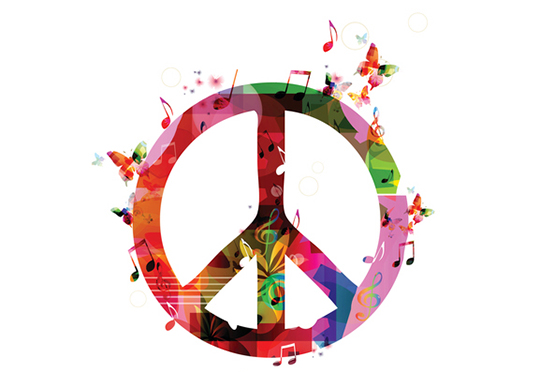 Professors at Elizabethtown College view music as a powerful force, one capable of changing mindsets, increasing empathy and enabling conversations.
Professors at Elizabethtown College view music as a powerful force, one capable of changing mindsets, increasing empathy and enabling conversations.
Associate Professor of Music and Director of Music Education Kevin Shorner-Johnson emphasizes the importance of peacebuilding in his teaching and research. Peacebuilding, which Shorner-Johnson defines as “the recognition that day-to-day, small, intentional acts can have great power,” has become a staple of his professional scholarship and his classroom teachings.
“I feel that, at this time and place and context in 2018, there’s never been more important work than the work of peacebuilding,” he said. “It’s our heritage of E-town College. I feel very strongly about connecting to our sense of who we are, and that digs into the Anabaptist roots for our College.”
The arts in general, and music in specific, have played and continue to play a very crucial role in carrying and communicating the messages and modalities of change.”
Shorner-Johnson plans to teach a course in spring 2019 about the intersection of art and peacebuilding. He and Peacemaker-in-Residence Jonathan Rudy offer the class, which will count for creative expression core, through a Mellon Grant.
Although Rudy’s background is not a musical one, he recognizes music as an instigator of progress.
“In peacebuilding we are looking to engage the whole person, their society, their economics and their culture in the constructive change process,” Rudy said. “The arts in general, and music in specific, have played and continue to play a very crucial role in carrying and communicating the messages and modalities of change.”
Rudy said he is thrilled to be co-teaching the course with Shorner-Johnson. According to the scholar-in-residence, collaboration between departments is “the future of peacebuilding.”
This course is just one example of classroom collaboration between peacebuilding and music at E-town. Professor of Music and Director of Music Therapy Gene Ann Behrens incorporates peace and trauma studies in music therapy seminars and classes.
Having worked internationally with individuals traumatized by war, disaster and poverty, Behrens said she found credibility in using music to alleviate anxieties, develop resiliency and cope with other results of trauma, particularly while working with children in war-struck Palestine.
According to Behrens, who takes a neurobiological approach to trauma, music can help ease minds strained by anxiety and trauma. She teaches music therapy students to prioritize the neural goal of calming down the brain instead of just focusing on psychosocial goals such as working on eye contact or speaking.
“One of the reasons music works so well in trauma work related to peacebuilding… is that you want to help people calm themselves so that they are able to be more open and listen,” Behrens said. “You also want to get language working again, which shuts down with some trauma. If you do that, you’re opening the peace process up to potentially be more successful.”
The marriage of peace building and music is not limited to the classroom. On September 18, 2017, students from all corners of the music department gathered on campus to celebrate international Peace Day. According to Shorner-Johnson, this event was largely student-run.
“It’s our way of celebrating peace each year, and also developing a statement of intentional community,” Shorner-Johnson said.
Rudy, who previously collaborated with various music educators, foresees music as an increasingly important element of peace studies.
“Music is unifying and in that respect insuperable from the task of creating peace,” Rudy said.

